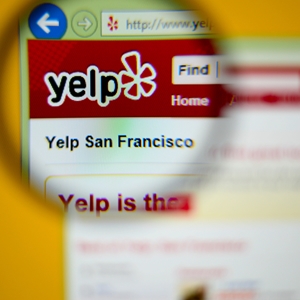
How Yelp Boosts – And Buries – Small Businesses
January 18, 2017 1:13 pm Leave your thoughts
For years, many small business owners all across the country have felt increasingly at the mercy of Yelp, the popular website and app for crowd-sourced reviews. On the one hand, a positive Yelp rating can be a great way to attract new customers. On the other hand, it doesn't always take much to get stuck with a negative rating – and that can be a death knell for a local operation.
A few years ago, for instance, Michael Luca, a professor at the Harvard Business School, conducted a study of Yelp's impact on both independent and chain restaurants in Seattle between 2003 and 2009. Luca found that the relationship between reviews and sales at small restaurants was significant – on average, an increase of one star led to revenue increases of between 5 to 9 percent. In chains, meanwhile, there was less of a correlation.
The problem is that the opposite is also true: Fewer stars means less revenue, especially if a business has received many reviews. And in some cases, there may be other factors skewing which reviews show up during customer searches.
Some business owners have complained that Yelp disfavors those that do not choose to buy advertisements on its website and app. In 2013, Ed Wells, owner of Chowderheads restaurant in Jupiter, Florida, told Business Insider that after he declined to buy ads, negative reviews began to pile up while positive ones failed to make it through Yelp's filter. He was left with an average review total of two-stars, and fears of future financial trouble despite a steady stream of regular customers.
Whether or not it is true that Yelp deliberately downplays businesses that don't make deals with the company, not all Yelp reviews are created equal. Indeed, one thing Luca noted in his study was that reviews written by Yelp's "elite" members carry much more weight than others.
This is not to say that small businesses have no recourse if they receive multiple negative reviews that they deem unfair. An article on Marketing Land suggests flagging any review that appears to violate Yelp's content guidelines. This may increase the chance that particularly nasty or outright false reviews will be removed.
Due to the passage of the Consumer Review Fairness Act, it is illegal for businesses to prevent customers from writing and spreading negative reviews. Even still, it is important for small businesses to learn about any potential recourse available to them.
Are you looking to start your own business in Arizona? The Law Offices of Donald W. Hudspeth, P.C., have years of experience guiding entrepreneurs through the formation of new businesses. We'll help you navigate the numerous complexities of intellectual property law to get you off on the right foot. Call us today to learn more.
Categorised in: Business Law
This post was written by





